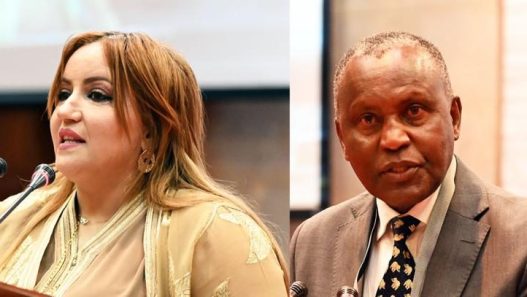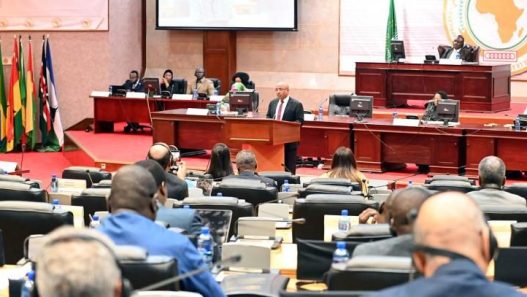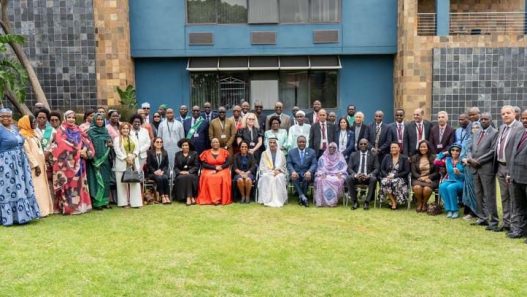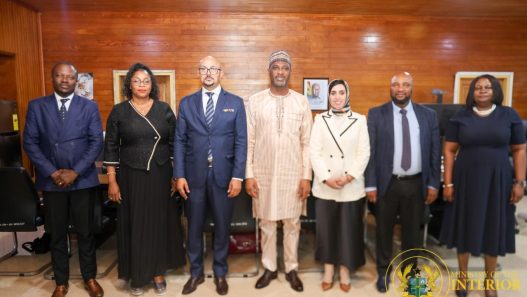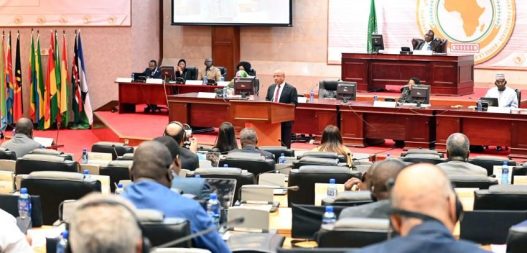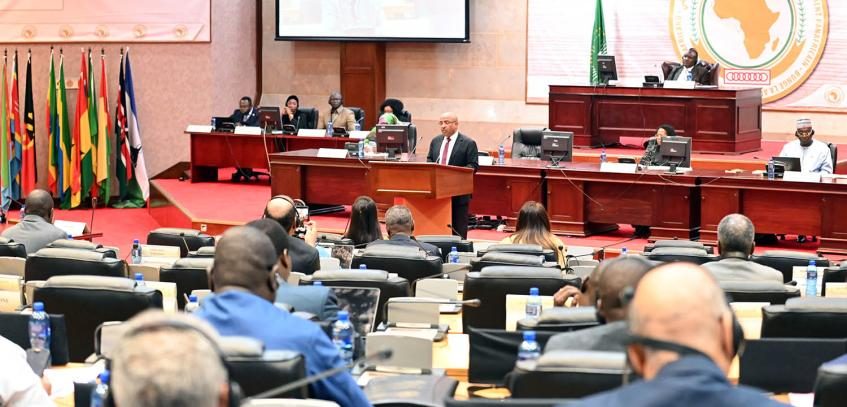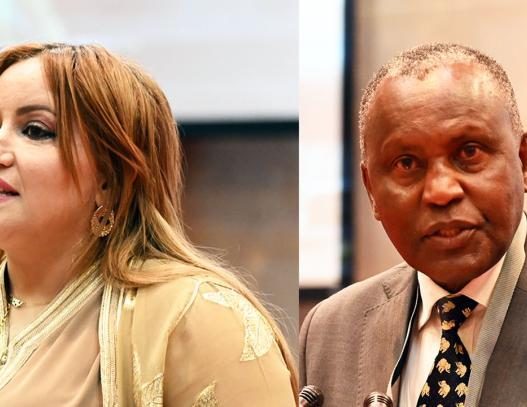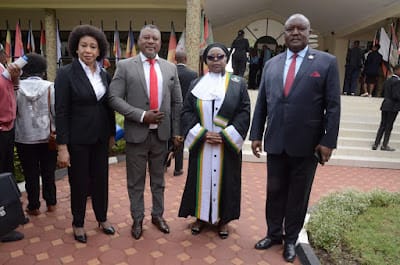The second day of the Sixth Ordinary Session of the Sixth Parliament of the Pan-African Parliament (PAP), currently under way in Midrand, South Africa, featured a compelling debates and presentations centered on Peace, Security, and Tolerance.
H.E. Fortune Charumbira, President of the Pan-African Parliament , opened with a reflection on the responsibility of parliaments to model unity and restraint. “As we seek solutions for the conflicts of others, we must ensure we do not create new conflicts among ourselves,” he said, setting the tone for a day focused on dialogue, understanding, and practical measures for coexistence.
Moses Chrispus Okeloo, Researcher at the Institute for Security Studies, highlighted Sudan’s multi-layered conflict, which has displaced over 10 million people and placed 25 million at risk of famine, noting that clashes between the Sudanese Armed Forces and the Rapid Support Forces, compounded by foreign military support and arms, have worsened the crisis. He recommended urgent fact-finding missions, coordination with the African Union, and actions to curb arms proliferation and illicit resource extraction, underscoring the critical role of parliamentary diplomacy in preventing further humanitarian deterioration.
H.E. Ahmed Al Jarwan, President of the Global Council for Tolerance and Peace, followed with an emphasis on the global role of parliaments in promoting peace. He highlighted the work of the International Parliament for Tolerance and Peace (IPTP), which provides a platform for lawmakers, academics, and civil society to advance dialogue and cooperation. The IPTP has convened sessions in over a dozen countries and partnered with universities to advance education on tolerance, demonstrating the universality of peace as a shared human mission.
The Ambassador of Sudan to South Africa delivered a sobering account of the humanitarian toll, particularly in Al-Fashr, where more than 1,500 civilians lost their lives. He stressed that external interference exacerbates the conflict, describing it as “a war against the Sudanese people, an assault on sovereignty and peace.”
Members of Parliament deliberated on the presentations, emphasizing dialogue and negotiation as the primary means to resolve conflicts. They highlighted the importance of sending fact-finding and observer missions to Sudan, Madagascar, Tanzania, and Uganda, as well as supporting regional dialogue and reconciliation initiatives in South Sudan. MPs stressed early-warning mechanisms, proactive monitoring, and swift humanitarian access to mitigate escalating crises. They underscored the need for African-led solutions, minimizing external interference, and ensuring reconciliation, tolerance, and community dialogue. Practical recommendations included supporting ceasefires, sanctioning actors that fuel conflict, facilitating humanitarian corridors for aid delivery, promoting youth engagement, strengthening parliamentary oversight of peacekeeping and humanitarian initiatives, and reinforcing the role of parliamentary diplomacy in promoting peace and security across the continent.
Closing the session, H.E. Chief Fortune Charumbira, President of the PAP, thanked all speakers for their courage and insights. “As leaders, we must face truth with calm and conviction. We do not shy away from difficult conversations, we confront them with dignity. This Parliament must stand as Africa’s conscience, speaking for peace, justice, and unity,” he said.
The session concluded with a renewed commitment to advance tolerance, parliamentary diplomacy, and practical action to address conflicts on the continent, reaffirming Africa’s role as a global advocate for peace and human dignity.

